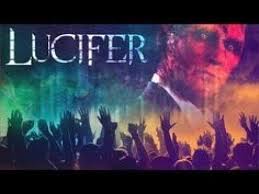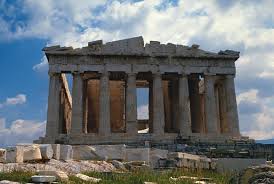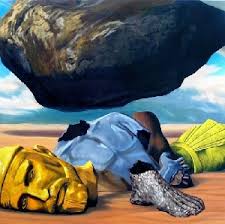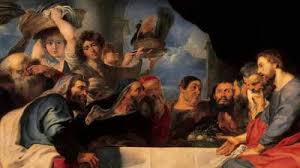Aw – La cuarta bestia: la etapa del anticristo Daniel 7:8, 20-22, 24b-26, 8:19, 23-25, 9:27 y 11:36-39
La cuarta bestia: la etapa del anticristo
Daniel 7:8, 20-22, 24b-26, 8:19, 23-25,
9:27 y 11:36-39
La cuarta bestia: la etapa del anticristo ESCUDRIÑAR: ¿Cuándo se levantará en poder el anticristo? ¿Quién es el verdadero poder detrás de su rápido ascenso? ¿Cuándo y cómo los judíos se dan cuenta de que quiere destruirlos a ellos? ¿Qué le sucede al anticristo al final de la Gran Tribulación?
La etapa del anticristo durará tres años y medio, desde la mitad hasta el final de la Gran Tribulación. Así como el cuarto imperio es diferente de los otros tres imperios, el anticristo, el cuerno pequeño (Daniel 7:8a), en cuanto a los diez cuernos: de ese reino se levantarán diez reyes, y tras ellos se levantará otro, el cual será diferente de los primeros, y a tres reyes derribará (Daniel 7:24).Será diferente de los otros diez cuernos. A medida que eleva su poder va a matar a tres reyes. Los otros siete simplemente se someterán a su autoridad. Por lo tanto, el anticristo será el último gobernante gentil de los tiempos de los gentiles (vea el comentario sobre La vida de Cristo Jl – Jerusalén será pisoteada por los gentiles hasta que se cumplan los tiempos de los gentiles).
En su primera visión, Daniel dijo que el anticristo hablará palabras contra El Altísimo, y quebrantará a los santos de ‘Elyonin. Intentará cambiar los tiempos y la Ley, y serán entregados en su poder por un tiempo, dos tiempos y medio tiempo (7;25), tratando de cambiar los tiempos de las fiestas judías como Jeroboam hizo en Primera de Reyes 12:26-33. Y él tratará de cambiar la Torá. Hará un fuerte pacto con los líderes judíos durante un tiempo, tiempos y medio tiempo, o los segundos tres años y medio durante los siete años de la Gran Tribulación (Daniel 7:25b, 9:27, 12:7; Apocalipsis 11:2-3, 12:6, 14, 13:5). Pero después de los tres años y medio, el Juez se sentará, y se le quitará su dominio para que sea destruido y arruinado hasta el fin (Daniel 7:26). Con cada visión posterior, Daniel nos brinda más información sobre él.
El viejo profeta continuó diciendo: Estaba observando los cuernos, y he aquí otro cuerno pequeño salía entre ellos, ante el cual tres de los primeros cuernos fueron arrancados de raíz (7:8a). Este es el undécimo cuerno. Tres de los primeros cuernos fueron arrancados antes. Esto dejó siete de los diez cuernos originales. Y he aquí, este cuerno tenía ojos como de hombre, y una boca que hablaba grandes cosas (Daniel 7:8b). Ese cuerno tenía ojos y una boca que hablaba grandes cosas, y su aspecto era más imponente que el de sus compañeros (Daniel 7:20b), enfatizando la inteligencia.De hecho, este cuerno libra una guerra contra los justos del TaNaJ: Y observé que este cuerno hacía guerra contra los santos, y los vencía, hasta que vino el Anciano de días, y se dio el juicio a los santos del Altísimo, y llegó el tiempo en que los santos poseyeron el reino (7:21-22). Como consecuencia, llega el momento en que poseerán el Reino milenial.
En la segunda visión de Daniel, el ángel Gabriel le dijo: He aquí te enseñaré lo que ocurrirá en el tiempo último de la indignación, porque eso es para el tiempo del fin, que es otro nombre para la Gran Tribulación (Daniel 8:19). Antíoco Epífanes (Daniel 8:9-14) se convirtió en un presagio del anticristo. Lo que Antíoco hizo en la historia, el anticristo lo hará según la profecía. Él fue el cuerno pequeño que creció fuera de los cuatro cuernos prominentes del imperio griego. Antíoco ni siquiera era el legítimo heredero al trono y asesinó a su hermano para obtener el control. Obtuvo el control de Palestina y oprimió al pueblo de Dios en su propia tierra. El anticristo matará a muchos judíos porque se resistirán a sus intentos de obligarlos a convertirse en griegos en su forma de pensar y sus costumbres (Primera Macabeos 1:29-61 y 52-61). Al masacrar a los judíos y obligar a cambios en la Torá, cometerá una gran transgresión a los ojos de Dios.39
Como parte de su segunda visión, Daniel profetizó que en la última parte de los tiempos de los gentiles (Haga clic en el enlace y vea An – Los tiempos de los gentiles), al fin del reinado de éstos, cuando los transgresores hayan completado su transgresión, se levantará un rey altivo de rostro y entendido en enigmas. Y su poder será enorme, pero no por su propia fuerza, y causará grandes ruinas y prosperará, y actuará arbitrariamente, y destruirá a los fuertes y al pueblo de los santos (Daniel 8:23-24). Se volverá muy fuerte política y militarmente, pero no se levantará por su propio poder porque su poder será satánico, destruirá a hombres poderosos, o líderes judíos, y a los santos, o el pueblo judío que quedó en la tierra después del Arrebatamiento.Él va a utilizar el engaño para prosperar. Él va a decir que es Dios mismo. Eso es exactamente lo que el apóstol Pablo (rabino Saulo) dijo que sucedería: ¡Nadie os engañe en ninguna manera!, porque no sucederá sin que antes venga la apostasía, y sea manifestado el hombre de iniquidad, el hijo de perdición, el cual se opone y se levanta contra todo lo que es llamado Dios u objeto de adoración, hasta el punto que se sienta en el santuario de Dios, proclamando que él mismo es Dios (2 Tesalonicenses 2:3-4). El hará una imagen de sí mismo en el templo de Dios y en tiempo de seguridad destruirá a muchos, y se levantará contra el Príncipe de los príncipes, pero será quebrantado, aunque no por mano humana (Daniel 8:25b).
 En su tercera visión, Daniel, con Antíoco Epífanes como tipo, continúa dándonos más información sobre el anticristo. Aquí se ocupa de la naturaleza del anticristo y su ascenso al poder. Aquel rey pues hará su voluntad, y se ensoberbecerá, y se engrandecerá sobre todo dios, y contra el Dios de los dioses proferirá cosas espantosas, y prosperará, hasta que sea consumada la ira, porque lo decretado se cumplirá (Daniel 11:36). De hecho, a mitad de la Gran Tribulación, él establecerá la imagen de sí mismo en el Lugar Santísimo para ser adorado (Mateo 24:15; Apocalipsis 13:3-9). Hablará palabras contra El Altísimo, y quebrantará a los santos del Altísimo (Daniel 7:25a), que es exactamente lo que hizo Antíoco Epífanes. Prosperará, hasta que sea consumada la ira, porque lo decretado se cumplirá, durante la Gran Tribulación de siete años, porque lo que Dios ha determinado debe tener lugar.
En su tercera visión, Daniel, con Antíoco Epífanes como tipo, continúa dándonos más información sobre el anticristo. Aquí se ocupa de la naturaleza del anticristo y su ascenso al poder. Aquel rey pues hará su voluntad, y se ensoberbecerá, y se engrandecerá sobre todo dios, y contra el Dios de los dioses proferirá cosas espantosas, y prosperará, hasta que sea consumada la ira, porque lo decretado se cumplirá (Daniel 11:36). De hecho, a mitad de la Gran Tribulación, él establecerá la imagen de sí mismo en el Lugar Santísimo para ser adorado (Mateo 24:15; Apocalipsis 13:3-9). Hablará palabras contra El Altísimo, y quebrantará a los santos del Altísimo (Daniel 7:25a), que es exactamente lo que hizo Antíoco Epífanes. Prosperará, hasta que sea consumada la ira, porque lo decretado se cumplirá, durante la Gran Tribulación de siete años, porque lo que Dios ha determinado debe tener lugar.
Los segundos tres años y medio serán un holocausto mundial contra los judíos. La persecución será tan severa que el anticristo logrará asesinar a dos tercios de la población judía de la época. Del Dios de sus padres no hará caso, ni del deseo de las mujeres, ni respetará a dios alguno, porque se engrandecerá a sí mismo por sobre todas las cosas (Daniel 11:37). Hará lo que le plazca, no mostrará ningún respeto por los dioses paganos de sus padres o tendrá poco lugar para la misericordia, la gentileza o la amabilidad, normalmente, se exaltará a sí mismo por encima de todos, incluso de Dios mismo.Pero esto no significa que él vaya a ser un ateo: honrará en cambio al dios de las fortalezas; a un dios que sus padres no conocieron lo honrará con oro, plata, piedras preciosas y ornamentos de gran precio (Daniel 11:38). El dios de las fortalezas, en el que la fuerza impone el derecho. Este será un dios desconocido para sus padres, él honrará a Satanás con ayuda del Diablo. Debido a que hace honor a Satanás, se le dará la capacidad sobrenatural satánica de dominar el mundo (Daniel 11:36-39, Segunda Tesalonicenses 2:8-10; Apocalipsis 13:1-8). Los que lo reconocen,y confiesan a él como Dios, serán recompensados por su lealtad. Con la unión pues del dios extraño, actuará contra las fortalezas más inexpugnables, y colmará de honores a los que lo reconozcan. Les dará dominio sobre muchos, y como recompensa les repartirá la tierra (Daniel 11:39). La tierra que conquiste será dividida y entregada a quienes lo adoren. Su ascenso al poder se produce sobrenaturalmente a través del poder de Satanás, quien usará al anticristo para tratar de destruir a todos los judíos de una vez por todas.
Al final de la Gran Tribulación, sin embargo, se levantará contra el Príncipe de los príncipes, pero será quebrantado, aunque no por mano humana (Daniel 8:25b). Hasta que vino el Anciano de días, y se dio el juicio a los santos del Altísimo, y llegó el tiempo en que los santos poseyeron el reino (Daniel 7:22). Aunque Antíoco Epífanes murió por manos humanas, el anticristo no lo hará. Jesús (Yeshua) el Mesías lo destruirá a él durante la campaña de Armagedón (Daniel 7:9-11, 26; Tesalonicenses 2:8). Una vez que los cuatro Reinos Gentiles sigan su curso, habrá un quinto Reino. Pero este será diferente, será un reino judío llamado mesiánico, pues llegó el tiempo en que los santos poseyeron el reino (Daniel 7:22b).



 La etapa de diez reinos
La etapa de diez reinos  Pero
Pero Esta cuarta bestia era realmente única, y lo que fue realmente diferente del
Esta cuarta bestia era realmente única, y lo que fue realmente diferente del
 Casi doscientos años antes del nacimiento de Alejandro, Daniel recibió esta profecía que predijo que el Imperio griego no se dividiría entre los hijos de Alejandro, sino entre otros cuatro. Cuando Daniel interpretó elsueño del rey Nabucodonosor, vio un tercer reino, uno de bronce, que dominará sobre toda la tierra (Daniel 2:39b). Luego, más tarde, cuando él recibió su propia visión con más detalles, él dijo: Después de eso seguí observando, y he aquí otra bestia, semejante a un leopardo, que tenía cuatro alas de ave en sus espaldas. Esta bestia tenía además cuatro cabezas, y le fue dado dominio (Daniel 7:6). Esta tercera bestia, como el vientre y los muslos de bronce, representa al Imperio griego. El leopardo es menos majestuoso que el león y menos grandioso que el oso, pero es más veloz y rápido que ambos. Con larapidez de un leopardo, Alejandro Magno conquistó el Imperio Medo-Persa y extendió en gran medida lacultura y la influencia griega. El leopardo también se utilizó como símbolo para el Imperio griego (Jeremías 5:6; Oseas 13:7). Lo que hizo que este leopardo como criatura luzca diferente del resto era que tenía cuatro alas de ave en sus espaldas. ElImperio de Alejandro tenía cuatro divisiones como las cuatro alas: la primera ala era Tracia, la segunda ala era Grecia, la tercera ala era Egipto, y la cuarta ala era Mesopotamia. Esta bestia tenía además cuatro cabezas, y le fue dado dominio (Daniel 7:6b). Esta bestia también tenía cuatro cabezas o lugares para gobernar. Y se le dio autoridad para gobernar. Este reino fue más grande que los dos anteriores.
Casi doscientos años antes del nacimiento de Alejandro, Daniel recibió esta profecía que predijo que el Imperio griego no se dividiría entre los hijos de Alejandro, sino entre otros cuatro. Cuando Daniel interpretó elsueño del rey Nabucodonosor, vio un tercer reino, uno de bronce, que dominará sobre toda la tierra (Daniel 2:39b). Luego, más tarde, cuando él recibió su propia visión con más detalles, él dijo: Después de eso seguí observando, y he aquí otra bestia, semejante a un leopardo, que tenía cuatro alas de ave en sus espaldas. Esta bestia tenía además cuatro cabezas, y le fue dado dominio (Daniel 7:6). Esta tercera bestia, como el vientre y los muslos de bronce, representa al Imperio griego. El leopardo es menos majestuoso que el león y menos grandioso que el oso, pero es más veloz y rápido que ambos. Con larapidez de un leopardo, Alejandro Magno conquistó el Imperio Medo-Persa y extendió en gran medida lacultura y la influencia griega. El leopardo también se utilizó como símbolo para el Imperio griego (Jeremías 5:6; Oseas 13:7). Lo que hizo que este leopardo como criatura luzca diferente del resto era que tenía cuatro alas de ave en sus espaldas. ElImperio de Alejandro tenía cuatro divisiones como las cuatro alas: la primera ala era Tracia, la segunda ala era Grecia, la tercera ala era Egipto, y la cuarta ala era Mesopotamia. Esta bestia tenía además cuatro cabezas, y le fue dado dominio (Daniel 7:6b). Esta bestia también tenía cuatro cabezas o lugares para gobernar. Y se le dio autoridad para gobernar. Este reino fue más grande que los dos anteriores. Cuando Daniel interpretó el sueño del rey Nabucodonosor, le dijo: Después de ti, se levantará otro reino inferior al tuyo (Daniel 2:39a). Muchos años después, ADONAI le dio a Daniel más detalles sobre ese reino en su propia visión. Él dijo: La segunda bestia, he aquí era semejante a un oso, y sabia que su pecho y sus brazos, eran de plata (Daniel 2:32b), esto representaba al imperio Medo-Persa. No era un oso, pero sus características principales eran semejantes a un oso, siendo menos majestuoso que el león. Sin embargo, con frecuencia en las Escrituras se asocia osos con leones (Primera Samuel 17:34-36; Segunda Samuel 17:8; Proverbios 28:15; Oseas 13:8). Los osos son grandes y pesados y este imperio Medo-Persa conquistaba por la mero fuerza de sus números. Este imperio comenzó con la unión de los medos y los persas; sin embargo, más tarde los persas seconvirtieron en los más dominantes de las dos naciones. Esta segunda bestia se alzaba de un costado más que del otro, teniendo tres costillas entre los dientes de su boca, y le fue dicho: ¡Levántate y devora carne en abundancia! (Daniel 7:5b). Para solidificar el imperio Medo-Persa tuvieron que conquistar otros tres reinos: Lidia, Babilonia y Egipto. Pero incluso más allá de estos tres reinos, Dios había dado a ellos el poder para hacer aún más conquistas fuera de sus fronteras: ¡Levántate y devora carne en abundancia!
Cuando Daniel interpretó el sueño del rey Nabucodonosor, le dijo: Después de ti, se levantará otro reino inferior al tuyo (Daniel 2:39a). Muchos años después, ADONAI le dio a Daniel más detalles sobre ese reino en su propia visión. Él dijo: La segunda bestia, he aquí era semejante a un oso, y sabia que su pecho y sus brazos, eran de plata (Daniel 2:32b), esto representaba al imperio Medo-Persa. No era un oso, pero sus características principales eran semejantes a un oso, siendo menos majestuoso que el león. Sin embargo, con frecuencia en las Escrituras se asocia osos con leones (Primera Samuel 17:34-36; Segunda Samuel 17:8; Proverbios 28:15; Oseas 13:8). Los osos son grandes y pesados y este imperio Medo-Persa conquistaba por la mero fuerza de sus números. Este imperio comenzó con la unión de los medos y los persas; sin embargo, más tarde los persas seconvirtieron en los más dominantes de las dos naciones. Esta segunda bestia se alzaba de un costado más que del otro, teniendo tres costillas entre los dientes de su boca, y le fue dicho: ¡Levántate y devora carne en abundancia! (Daniel 7:5b). Para solidificar el imperio Medo-Persa tuvieron que conquistar otros tres reinos: Lidia, Babilonia y Egipto. Pero incluso más allá de estos tres reinos, Dios había dado a ellos el poder para hacer aún más conquistas fuera de sus fronteras: ¡Levántate y devora carne en abundancia! La primera bestia, con la cabeza de oro, representaba al Imperio de Babilonia. El primer reino gentil fue como un león. El león es el rey de las bestias y se usó como símbolo de Babilonia (Jeremías 4:7, 49:19, 50:17 y 44). Lo que hace a este león diferente de otros leones es que tenía las alas de un águila. El águila es el rey de los pájaros y también se usó como símbolo de Babilonia (Jeremías 48:40, 49:22; Ezequiel 17:3). Por lo tanto, el león y el águila fueron utilizados por Jeremías para describir a Nabucodonosor. La primera era como león, pero tenía alas de águila. Yo estaba mirando hasta que sus alas fueron arrancadas, y ella fue alzada de la tierra, y puesta sobre sus pies, a manera de hombre, y le fue dado corazón de hombre (Daniel 7:4). Esta es una descripción del orgulloso y auto suficiente rey Nabucodonosor que fue reducido a un animal de campo para que se diera cuenta de su dependencia de Dios (Daniel 4:1-37). Pero también representa tanto a Nabucodonosor como a su imperio, porque hasta donde un hombre podría convertirse en una bestia, se convirtió en una. Y tanto como una bestia puede convertirse en hombre, Babilonia perdió su naturaleza de bestia y sus características animales y se volvió más humana. Esto resume la experiencia de Babilonia cambiando de la lujuria de la conquista a la construcción de la cultura.
La primera bestia, con la cabeza de oro, representaba al Imperio de Babilonia. El primer reino gentil fue como un león. El león es el rey de las bestias y se usó como símbolo de Babilonia (Jeremías 4:7, 49:19, 50:17 y 44). Lo que hace a este león diferente de otros leones es que tenía las alas de un águila. El águila es el rey de los pájaros y también se usó como símbolo de Babilonia (Jeremías 48:40, 49:22; Ezequiel 17:3). Por lo tanto, el león y el águila fueron utilizados por Jeremías para describir a Nabucodonosor. La primera era como león, pero tenía alas de águila. Yo estaba mirando hasta que sus alas fueron arrancadas, y ella fue alzada de la tierra, y puesta sobre sus pies, a manera de hombre, y le fue dado corazón de hombre (Daniel 7:4). Esta es una descripción del orgulloso y auto suficiente rey Nabucodonosor que fue reducido a un animal de campo para que se diera cuenta de su dependencia de Dios (Daniel 4:1-37). Pero también representa tanto a Nabucodonosor como a su imperio, porque hasta donde un hombre podría convertirse en una bestia, se convirtió en una. Y tanto como una bestia puede convertirse en hombre, Babilonia perdió su naturaleza de bestia y sus características animales y se volvió más humana. Esto resume la experiencia de Babilonia cambiando de la lujuria de la conquista a la construcción de la cultura.


